
Mycotoxin Research
Scope & Guideline
Mitigating Risks Through Interdisciplinary Research
Introduction
Aims and Scopes
- Mycotoxin Detection and Analysis:
Research focusing on the development and validation of methods for detecting and quantifying mycotoxins in food and feed, utilizing advanced analytical techniques such as LC-MS/MS and immunoassays. - Health Risk Assessment:
Studies assessing the health risks associated with mycotoxin exposure in humans and animals, including epidemiological studies and biomonitoring approaches. - Mycotoxin Management Strategies:
Exploration of various strategies for mycotoxin prevention and detoxification in food and feed, including natural solutions, processing methods, and feed additives. - Environmental and Climatic Influences:
Research examining the effects of environmental factors and climate change on mycotoxin production and contamination in agricultural products. - Toxicological Mechanisms:
Investigations into the cellular and molecular mechanisms of mycotoxin toxicity, including studies on oxidative stress, apoptosis, and immune responses. - Emerging Mycotoxins and New Findings:
Focus on newly identified mycotoxins and their biological effects, along with the occurrence of modified mycotoxins in various food products.
Trending and Emerging
- Multi-Mycotoxin Occurrence:
There is an increasing focus on the simultaneous occurrence of multiple mycotoxins in various food products and animal feeds, highlighting the complexity of contamination and the need for comprehensive risk assessments. - Natural Detoxification Methods:
Research is trending towards exploring natural solutions for detoxifying mycotoxins, such as the use of plant extracts and probiotics, which align with growing consumer interest in food safety and health. - Mycotoxin Impact on Human Health:
Emerging studies are emphasizing the health impact of mycotoxins, particularly in vulnerable populations, with research on dietary exposure, biomarkers, and long-term health effects gaining prominence. - Technological Innovations in Detection:
The development of rapid and sensitive detection methods for mycotoxins, such as LA-REIMS and advanced chromatography techniques, is becoming a significant theme, reflecting the need for timely monitoring in food safety. - Climate Change Impacts:
Research examining the effects of climate change on mycotoxin production and contamination patterns is gaining traction, indicating a growing recognition of environmental factors in mycotoxin research.
Declining or Waning
- Fungal Diversity Studies:
Research specifically focused on the diversity of mycotoxigenic fungi has decreased, possibly due to a shift towards understanding their ecological roles and interactions rather than just cataloging species. - Historical Mycotoxin Incidents:
Publications centered around historical case studies of mycotoxin contamination incidents have become less frequent, indicating a possible shift towards proactive prevention strategies rather than reactive analysis. - Basic Toxicological Studies:
There appears to be a decline in basic toxicological studies that do not connect to broader health implications or management strategies, as researchers increasingly focus on applied research with immediate relevance.
Similar Journals
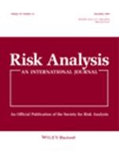
RISK ANALYSIS
Uncovering the Dynamics of Safety in Complex SystemsRISK ANALYSIS is a premier journal published by Wiley, focusing on the critical intersection of safety, risk, reliability, and quality within the fields of engineering and physiology. With a strong standing reflected in its Q1 category ranking in Safety, Risk, Reliability and Quality and Q2 in Physiology (medical), this journal is a vital resource for researchers, professionals, and students eager to stay informed on the latest methodologies, theories, and applications surrounding risk assessment and management. Since its inception in 1981, RISK ANALYSIS has been instrumental in shaping the discourse in its fields, garnering a robust reputation verified by its high rankings on Scopus, where it is positioned in the 85th percentile in Safety and the 77th percentile in Medicine. Though it does not currently offer Open Access options, the journal remains essential for those committed to advancing their understanding of risks associated with complex systems. For more insights, RISK ANALYSIS is available to readers throughout its converged years extending to 2024, solidifying its role as a foundational journal for impactful research.
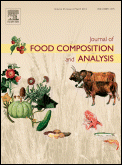
JOURNAL OF FOOD COMPOSITION AND ANALYSIS
Pioneering Insights into Food Composition and AnalysisJOURNAL OF FOOD COMPOSITION AND ANALYSIS, published by Academic Press Inc. Elsevier Science, is a leading peer-reviewed journal in the field of Food Science, recognized for its substantial impact on advancing research and knowledge within the discipline. With a commendable Q1 quartile ranking in the 2023 category of Food Science and a Scopus rank of 86/389, this journal holds a prestigious position, emphasizing its significance in crop and food quality research. The journal's scope encompasses a wide range of studies related to food composition, nutrition, and analytical methodologies, aiming to foster innovation and knowledge dissemination in food science. Although it operates under a subscription model, it remains an essential resource for researchers, professionals, and students seeking credible and cutting-edge findings. Established in 1987, the JOURNAL OF FOOD COMPOSITION AND ANALYSIS continues to be at the forefront of food science, contributing to the understanding of food quality and nutrition standards globally.
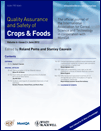
Quality Assurance and Safety of Crops & Foods
Fostering collaboration for global food security.Quality Assurance and Safety of Crops & Foods is a leading peer-reviewed journal, published by CODON PUBLICATIONS, dedicated to advancing the fields of Agronomy and Crop Science and Food Science. Since its inception in 2009, this journal has established itself as a crucial platform for researchers, professionals, and students, focusing on the vital intersection of agricultural safety and food quality. With a commendable impact factor and a current Scopus ranking placing it in the top quartiles of its field (Q2 in 2023), it serves as an essential resource for those committed to ensuring the safety and quality of global food supplies. The journal provides open access options to enhance the dissemination and accessibility of research findings, thus fostering collaborative efforts to tackle contemporary challenges in food production and safety. By showcasing innovative methodologies and cutting-edge research, Quality Assurance and Safety of Crops & Foods not only contributes to scientific discourse but also plays a pivotal role in informing policy and practice in sustainable agricultural practices.

BULLETIN OF ENVIRONMENTAL CONTAMINATION AND TOXICOLOGY
Investigating the effects of pollutants on human health.BULLETIN OF ENVIRONMENTAL CONTAMINATION AND TOXICOLOGY, published by SPRINGER, is a pivotal journal in the fields of Environmental Science, Toxicology, and Public Health. With a strong history of dissemination since its inception in 1966, the journal predominantly focuses on the latest advances in understanding environmental contaminants and their toxicological effects on health and ecosystems. It currently holds a respectable Q2 ranking across multiple categories including Health, Toxicology and Mutagenesis, Medicine (miscellaneous), and Pollution, as per the 2023 metrics. While the journal is not Open Access, it provides an invaluable platform for researchers, professionals, and students seeking to contribute to and stay informed on critical issues regarding environmental hazards and their implications. With an engaged community of scholars and practitioners, this journal continues to be an essential resource for addressing the pressing challenges of environmental contamination and its health impacts, guiding future research and policy decisions.

Toxicology Communications
Sharing vital findings for health and environmental safety.Toxicology Communications is a vital academic journal published by Taylor & Francis Ltd, focusing on the critical field of toxicology. Established as an Open Access journal since 2017, it provides researchers, professionals, and students unrestricted access to significant findings in toxicological sciences, promoting global collaboration and knowledge sharing. The journal aims to disseminate innovative research, reviews, and case studies that explore the effects of chemical, biological, and physical agents on human health and the environment. With its commitment to high-quality publications, Toxicology Communications plays an essential role in advancing our understanding of toxicological phenomena and fostering safe practices across various industries. This makes it an invaluable resource for anyone dedicated to the studies of toxins and their environmental and health implications.
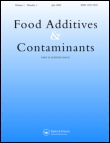
Food Additives & Contaminants Part B-Surveillance
Driving knowledge forward in food science and toxicology.Food Additives & Contaminants Part B-Surveillance, published by Taylor & Francis Ltd, is a premier journal dedicated to the rigorous analysis and surveillance of food additives and contaminants. With an ISSN of 1939-3210 and an E-ISSN of 1939-3229, this journal caters to a global audience, addressing crucial issues in the fields of Food Science, Public Health, and Toxicology. Recognized for its substantial contribution to these areas, it holds a Q2 ranking in both Food Science and Public Health, demonstrating its influence and relevance with an increasing audience within the scientific community. The journal publishes critical research from 2008 onwards and continues its commitment to advancing knowledge up to 2024. Ideal for researchers, practitioners, and students, Food Additives & Contaminants Part B-Surveillance serves as a vital platform for sharing innovative findings and fostering discussions that promote food safety and public health.

World Mycotoxin Journal
Pioneering insights into mycotoxins for public health and safety.The World Mycotoxin Journal, published by Wageningen Academic Publishers, stands at the forefront of research in the field of mycotoxins, drawing particular attention to their implications in food science, public health, and environmental safety. With an ISSN of 1875-0710 and an E-ISSN of 1875-0796, this journal has continuously contributed to advancing knowledge since its inception and will remain a vital source of information through 2024. Ranked in Q2 within Food Science and achieving notable positions in Public Health and Toxicology, it offers an impactful forum for scholars and professionals worldwide. The journal’s Scopus rankings reflect its importance, with Public Health receiving a 68th percentile ranking, further underscoring the relevance of mycotoxin research in mitigating health risks. Researchers and students alike will benefit from its rigorous peer-reviewed articles, providing access to cutting-edge studies and overviews that address the complexities of mycotoxins and their far-reaching effects.
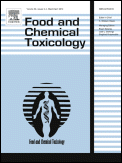
FOOD AND CHEMICAL TOXICOLOGY
Elevating standards in food science and toxicology.FOOD AND CHEMICAL TOXICOLOGY, published by Pergamon-Elsevier Science Ltd, is a prestigious journal with a significant impact in the fields of food science, medicine, and toxicology, reflecting its Q1 and Q2 quartile rankings in various categories as of 2023. Established in 1982, this journal continues to serve as an essential platform for disseminating high-quality research focused on the toxicological assessment of foods and chemicals, aiming to advance knowledge that affects public health and safety. With a pivotal role in integrating diverse disciplines, including pharmacology and agricultural sciences, the journal ranks impressively within the top percentiles—specifically 95th in Toxicology and 92nd in Food Science on the Scopus metrics. Though it operates on a traditional subscription model, the journal is committed to providing valuable insights and findings to researchers, professionals, and students across the globe, making it a vital resource in the ongoing discourse around food safety and environmental health. Its comprehensive scope underscores its importance in shaping evidence-based policies and practices.
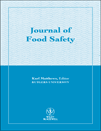
JOURNAL OF FOOD SAFETY
Innovating practices for a safer food future.Journal of Food Safety is a premier resource in the field of food science, offering invaluable insights into food safety practices, microbiology, and parasitology. Published by WILEY, this journal has been a pivotal platform for the dissemination of research since its inception. With an impressive impact factor reflecting its esteemed reputation, the journal caters to a diverse audience of researchers, professionals, and students committed to advancing knowledge in food safety. While currently not an open access journal, it still provides essential findings that contribute significantly to the understanding of foodborne pathogens and preventive measures. Recognized in the Q2 and Q3 quartiles across various relevant disciplines, including Food Science, Microbiology, and Parasitology, the Journal of Food Safety continues to uphold high standards in scientific research and education. Researchers are encouraged to submit their manuscripts and engage with groundbreaking studies that are shaping the future of food safety.
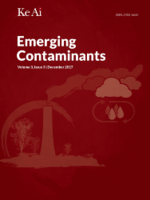
Emerging Contaminants
Pioneering research for a sustainable tomorrow.Emerging Contaminants is a leading international journal dedicated to the exploration and analysis of novel pollutants, their effects, and the methodologies for their detection and remediation. Published by KEAI PUBLISHING LTD in China, this Open Access journal has been at the forefront of scientific discourse since its inception in 2015, allowing unrestricted access to cutting-edge research. With an impressive categorization in the top Q1 quartile across diverse fields, including Health, Toxicology and Mutagenesis, and Public Health, it ranks remarkably high—41st out of 665 in Public Health and 10th out of 133 in Toxicology according to Scopus metrics, demonstrating its vital role in advancing our understanding of environmental health risks. By bridging the gap between academia and practical applications, Emerging Contaminants not only enriches the scientific community but also serves as an essential resource for policymakers and industry leaders seeking effective solutions to environmental challenges. Researchers, professionals, and students alike are encouraged to engage with the journal’s comprehensive studies and findings, contributing to a sustainable future.